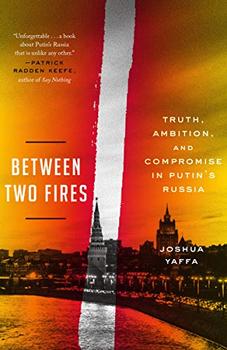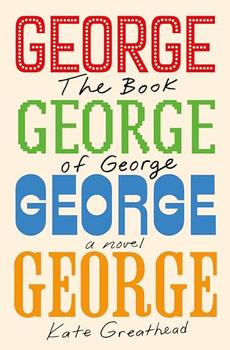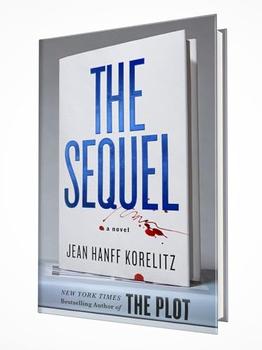Summary | Excerpt | Reviews | Beyond the Book | Readalikes | Genres & Themes | Author Bio

Truth, Ambition, and Compromise in Putin's Russia
by Joshua YaffaChapter 1
Master of Ceremonies
In the final days of 1999, just as he had each December for several years, Konstantin Ernst prepared to film the presidential New Year's address. Ernst, then thirty-eight, with a face of cheerful, perpetual bemusement and a floppy mane of brown hair that nearly covered his shoulders, is the head of Channel One, the network with the country's largest reach, a position that grants him the stature of an unofficial government minister. He is not only the chief producer of his channel, but also, by extension, the director of the visual style and aesthetics of the country's political life—at least the part its rulers wish to transmit to the public. The New Year's address, delivered at the stroke of midnight, is a way to do exactly that: a way for a Russian leader to impart a sense of narrative to the year past and offer some guiding clues and symbols for the year to come. The tradition took shape in the seventies, under Leonid Brezhnev, whose rule stretched on for so long that his droning, puffy-faced New Year's addresses all blended together. Gorbachev tried to instill a sense of discipline and purpose in his New Year's appearances, even as, with each passing year, the country was in a state of slow-motion disintegration.
Boris Yeltsin, who took power in 1991, continued the tradition. And so, on December 27, 1999, three days before the new millennium, Ernst and a crew from Channel One made their way to the Kremlin to film Yeltsin's address ahead of time, to have everything ready in advance per long-standing practice. By the late nineties, Yeltsin, once a feisty, charismatic advocate of democratic reform, had entered a spiral of decay of both body and spirit, becoming an enervated shell of his former self. He was still capable of episodic vitality, but was largely weakened and chiefly concerned with leaving office in a way that would keep him and his family safe and immune from prosecution. The country was only a year removed from a devastating financial crash that had led the government to default on its debt and saw the ruble lose 75 percent of its value; at the same time, Russian troops were fighting their second costly war in a decade in Chechnya, a would-be breakaway republic in the Caucasus. Ernst watched as Yeltsin sat in front of a decorated tree in the Kremlin reception hall and spoke a few saccharine words into the camera, the standard appeal to unity and patriotism and the opportunities of the new year—including, as Yeltsin mentioned, the upcoming presidential election in the spring that would determine his successor.
After he finished, as the Channel One crew was packing up, Yeltsin told Ernst that he wasn't satisfied with his address. He said he didn't like the way his words had come out, and he was also feeling hoarse—could they rerecord a new version sometime in the coming days? Ernst said yes, of course, but they should hurry, since there wasn't much time left before the new year. Yeltsin proposed the thirty-first of December; Ernst pleaded for an earlier appointment, reminding him that given Russia's massive size and eleven time zones, the clock strikes midnight in Chukotka—the first place the president's address is aired—when it is still the early afternoon in Moscow. Fine, Yeltsin said, come on New Year's Eve at five in the morning.
Ernst and his crew set up their equipment the night before, and returned before dawn on the morning of the thirty-first. Valentin Yumashev, Yeltsin's son-in-law and confidant, quietly handed Ernst the text of Yeltsin's new address. Ernst tried to contain his shock: Yeltsin was about to announce his resignation, departing the presidency in sync with the close of one millennium and the dawn of another. His successor would be Vladimir Putin, a politician whom most Russians were just getting to know: Putin had risen from bureaucratic obscurity to become head of the FSB, the post-Soviet successor to the KGB, and had been named Yeltsin's prime minister four months earlier. Even as Yeltsin's administration sputtered to a close, he was still capable of the dramatic, unexpected flourish—no one in his government, let alone the country at large, expected him to leave office before the end of his term. Ernst told a production assistant to enter the text into the teleprompter without letting anyone else in on the news. It should come as a surprise to everyone. At ten in the morning, Yeltsin entered the reception hall, took a seat, and began to speak.
Excerpted from Between Two Fires by Joshua Yaffa. Copyright © 2020 by Joshua Yaffa. Copyright © 2020 by Joshua Yaffa. All rights reserved. No part of this excerpt may be reproduced or reprinted without permission in writing from the publisher.




Our wisdom comes from our experience, and our experience comes from our foolishness
Click Here to find out who said this, as well as discovering other famous literary quotes!
Your guide toexceptional books
BookBrowse seeks out and recommends the best in contemporary fiction and nonfiction—books that not only engage and entertain but also deepen our understanding of ourselves and the world around us.